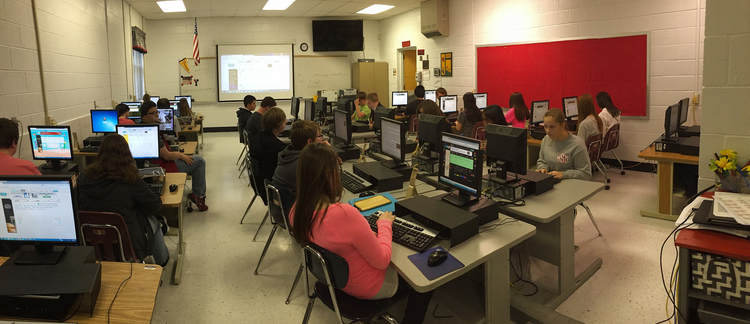Abstract
This volume contains three articles that address the context and contextual factors that influence the use of learning technologies in a variety of settings. The first, by Kimberly Nava Eggett, utilizes a Critical Race Theory framework to evaluate the effectiveness of instructional technology and STEM opportunities for girls and students of color. The second, a literature review by Aigul Rakisheva, analyzes research that addresses Computational Thinking (CT) competency frameworks used to evaluate pre-service teachers' digital competence levels. The third, by Sheila Marie Noonen, reviews the book Disciplinary Literacy and Gamified Learning in Elementary Classrooms: Questing Through Time and Space, by Leslie Haas , Michelle Metzger, and Jill T. Tussey.
Keywords: educational technologies, learning technologies, critical race theory, STEM education, computational thinking, teacher education, Issues and Trends in Learning
EDITORIAL: Context is Decisive.
Gerald P. Ardito
Editor, ITLT
So often when I am thinking about/teaching about/writing about learning technologies, my mind turns to the film The Gods Must Be Crazy . As you may remember, a pilot flying over a remote African village carelessly tosses a soda bottle out of the plane’s window, which is found by a traveling Bushman. The Bushman, and everyone he encounters, all have a different understanding of this alien and unfamiliar technology. In the storyline, each individual brings his/her/their own cultural perspective to the object in order to understand its intent, function, capabilities, and possibilities. In each case, the context of how each person interacts with the tool is decisive .
I recently discovered this quote in a paper by Nakash and Bouhnik (2022) on Knowledge Management (feel free to substitute Learning Technologies in your head as you read it) to be quite striking and relevant:
“Knowledge Management is the strategy, the methods, the processes, the people. The tool? In the end, it’s a tool, but that’s not the essence... The human factor is the lead, not the technology.”
The context is decisive .
In this issue, we present three articles that offer some insight into the role that context plays in shaping the use and efficacy of learning technologies. In addition, we share two articles that offer insight into this distinction. The first, by Kimberly Nava Eggett, deftly utilizes Critical Race Theory framework to evaluate the effectiveness of instructional technology and STEM opportunities for girls and students of color. The second is a literature review by Aigul Rakisheva that analyzes research investigating Computational Thinking (CT) competency frameworks used to evaluate pre-service teachers' digital competency levels. The third, by Sheila Marie Noonen, reviews the book Disciplinary Literacy and Gamified Learning in Elementary Classrooms: Questing Through Time and Space , by Leslie Haas, Michelle Metzger, and Jill T. Tussey, which explores how gamification can change the context of learning in elementary classrooms.
This issue of ITLT marks the beginning of my second year as Editor. I am deeply appreciative my editorial partner, Pam Amendola as well as the network of reviewers who contribute so much to this journal.
Excelsior!
References
Haas, L., Metzger, M., & Tussey, J. T. (2022). Disciplinary literacy and gamified learning in elementary classrooms: Questing through time and space . Springer International Publishing AG.
Nakash, M., & Bouhnik, D. (2022). “A system that will do magic”: organizational perspective on the technological layer in knowledge management. Aslib Journal of Information Management .

